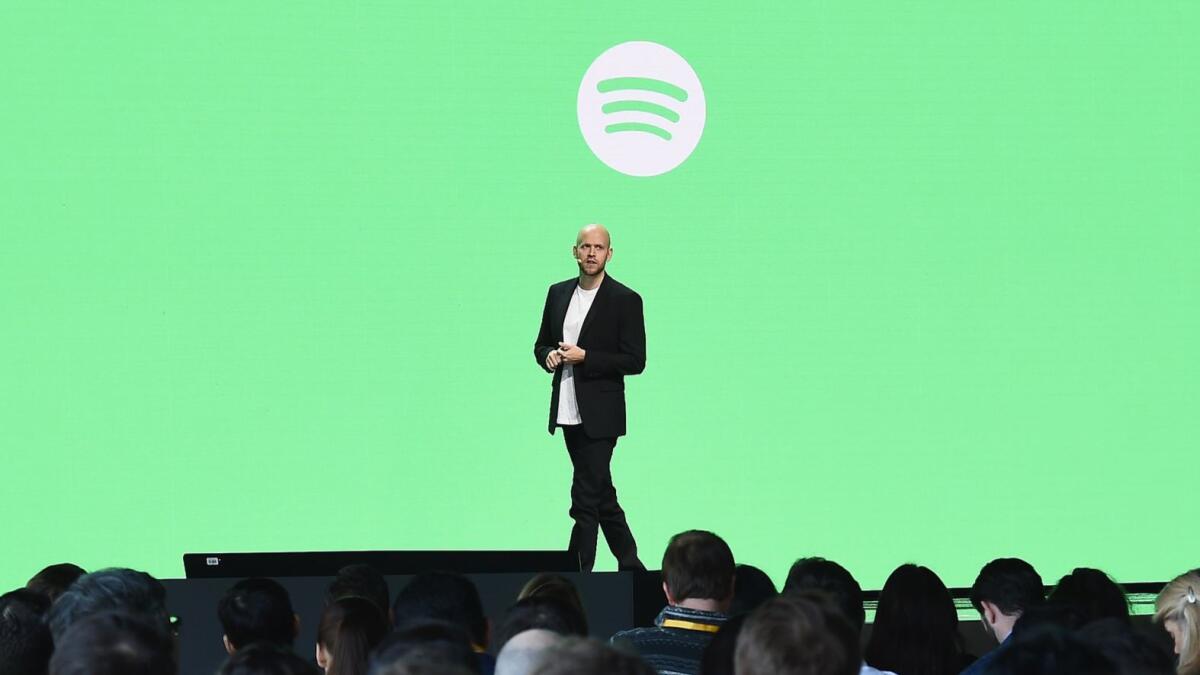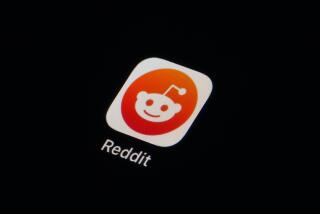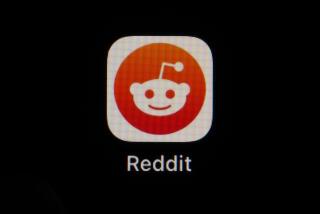Spotify IPO: Stock will list April 3; company is skipping roadshow and media interviews

- Share via
Spotify Ltd. will begin trading on the New York Stock Exchange on April 3, just a week after the music-streaming company plans to provide its most recent annual financial guidance.
The company announced the timing at an investor day Thursday, in a livestreamed hours-long event designed to introduce the company to public market investors. Spotify will skip the roadshow meetings and media interviews that are typical in a traditional initial public offering.
The company will give its first annual financial guidance March 26.
Chief Executive Daniel Ek said Spotify chose this route because “going public has not been about the pomp and circumstance of it all.”
Ek also doesn’t want to impose the post-IPO lockup period on existing investors, during which they wouldn’t be allowed to sell shares for a number of months after the shares start trading.
The company is skipping the usual price-discovery process of an IPO. Spotify and its advisors won’t be setting a range for the company’s shares before they start trading. Instead, its first public market valuation will be set just before the stock lists, based on the number of shares that existing investors want to sell, demand from those willing to buy and the price on which the parties agree.
As of March 9, Spotify had 183.6 million ordinary shares outstanding, according to a filing.
Although Spotify has tried to guide investors in its listing prospectus by disclosing the value at which shares have changed hands in private transactions, the range is wide. In 2017, the valuation ranged from $6.3 billion to $20.9 billion for the 12.8 million shares that changed hands, based on the stock price and shares outstanding listed in the filing. This year, the valuation has been calculated at $15.9 billion to $23.4 billion for the 2.8 million shares that traded.
More to Read
Inside the business of entertainment
The Wide Shot brings you news, analysis and insights on everything from streaming wars to production — and what it all means for the future.
You may occasionally receive promotional content from the Los Angeles Times.







